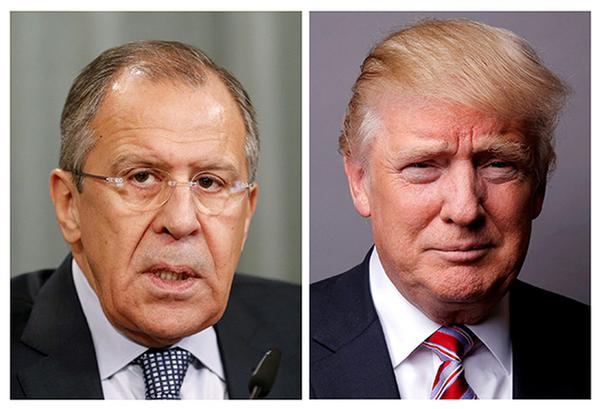White House denies Trump's revealing of classified info to Russia
Xinhua | Updated: 2017-05-16 08:48
 |
| A combination of file photos showing Russian Foreign Minister Sergei Lavrov attending a news conference in Moscow, Russia, November 18, 2015, and US President Donald Trump posing for a photo in New York City, US, May 17, 2016. [Photo/Agencies] |
WASHINGTON - The White House on Monday strongly denied media reports accusing President Donald Trump of revealing highly classified intelligence information to Russia.
US Secretary of State Rex Tillerson, National Security Adviser HR McMaster and Deputy National Security Adviser Dina Powell all issued statements saying such reports were wrong.
Trump reportedly relayed information from a critical source of intelligence on the Islamic State in Iraq and Syria when meeting with Russian Foreign Minister Sergei Lavrov and Russian Ambassador to the US Sergey Kislyak in White House last week.
The Washington Post first reported the disclosure earlier on Monday, followed by the New York Times and other nationwide news outlets.
"During President Trump's meeting with Foreign Minister Lavrov, a broad range of subjects were discussed among which were common efforts and threats regarding counter-terrorism," Tillerson said. "During that exchange the nature of specific threats were discussed, but they did not discuss sources, methods or military operations."
Powell said in a statement that the story was false. "The president only discussed the common threats that both countries faced."
"The president and the foreign minister reviewed common threats from terrorist organizations to include threats to aviation," said McMaster who participated in the meeting.
"At no time were any intelligence sources or methods discussed, and no military operations were disclosed that were not already known publicly." he said in a statement.
Trump's disclosures jeopardized a critical source of intelligence on the Islamic State, an information-sharing arrangement considered so sensitive that details have been withheld from allies and tightly restricted even within the US government, according to the Washington Post report.
The Washington Post said the information was provided by a US partner through an intelligence-sharing arrangement, but the partner did not give the US permission to share the information with Russia.
Following the meeting, the White House contacted the CIA and National Security Agency to contain the damage, according to the Post.
However, the US president has broad authority to declassify government secrets, making it unlikely that such disclosures broke the law, said the media reports.
























